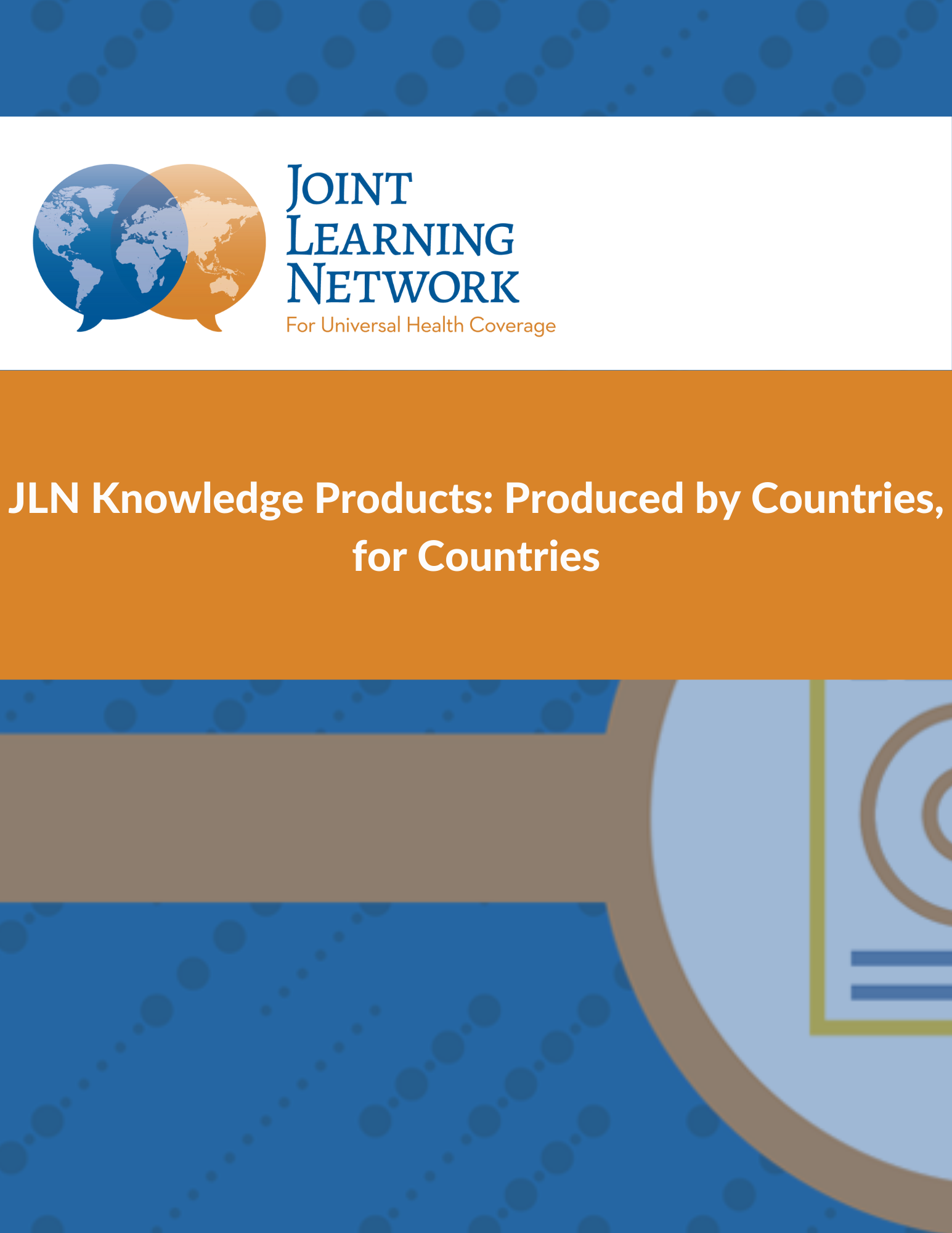
JLN Knowledge Products: Produced by Countries, for Countries
This KP brochure presents a list and brief of the JLN Knowledge products produced by countries for countries.

This KP brochure presents a list and brief of the JLN Knowledge products produced by countries for countries.
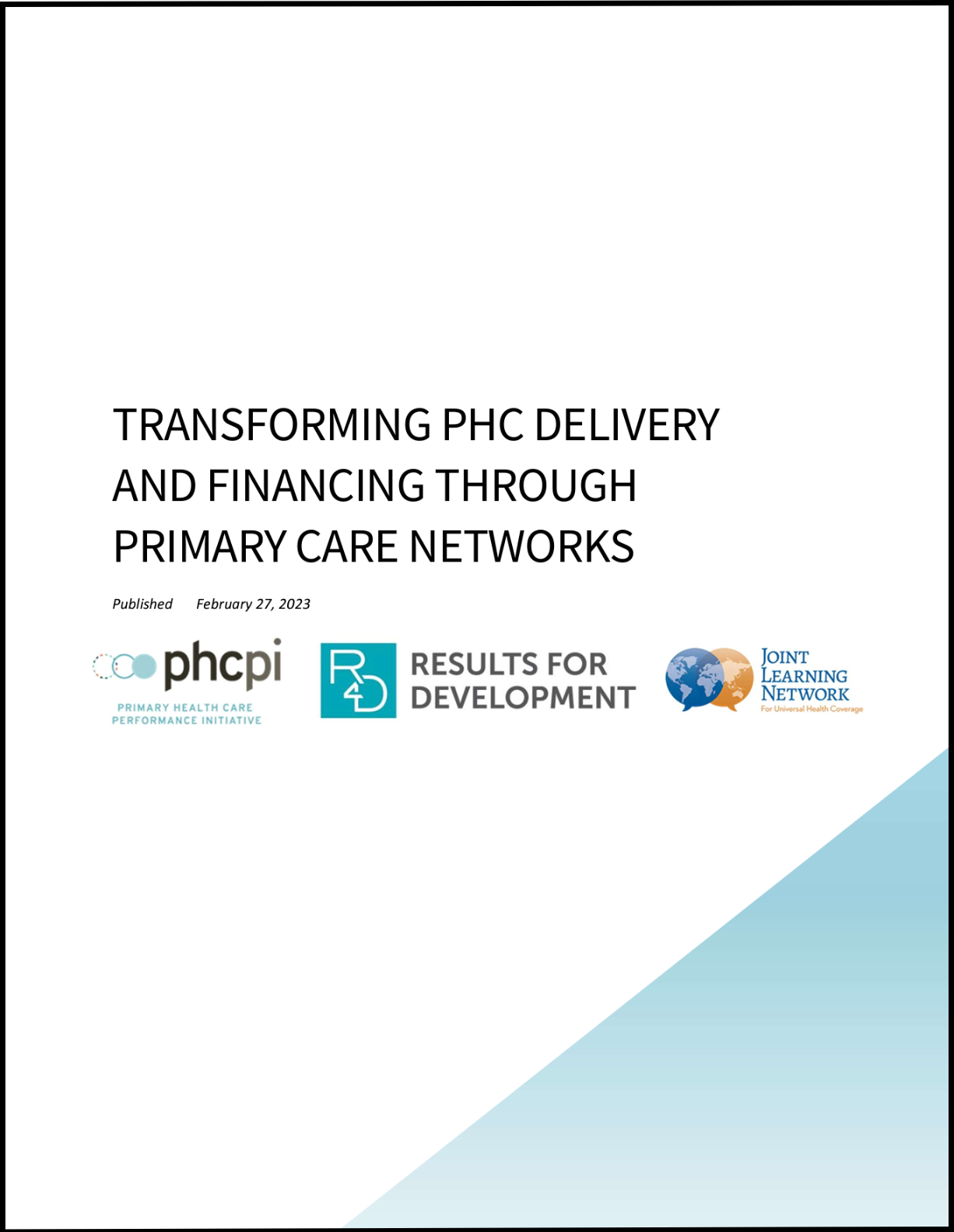
This paper highlights the process for developing this learning community and some of the key learnings on how to successfully implement PCNs. Furthermore, it provides key recommendations for country policymakers, practitioners, and development partners based on lessons from the PHCPI COP.
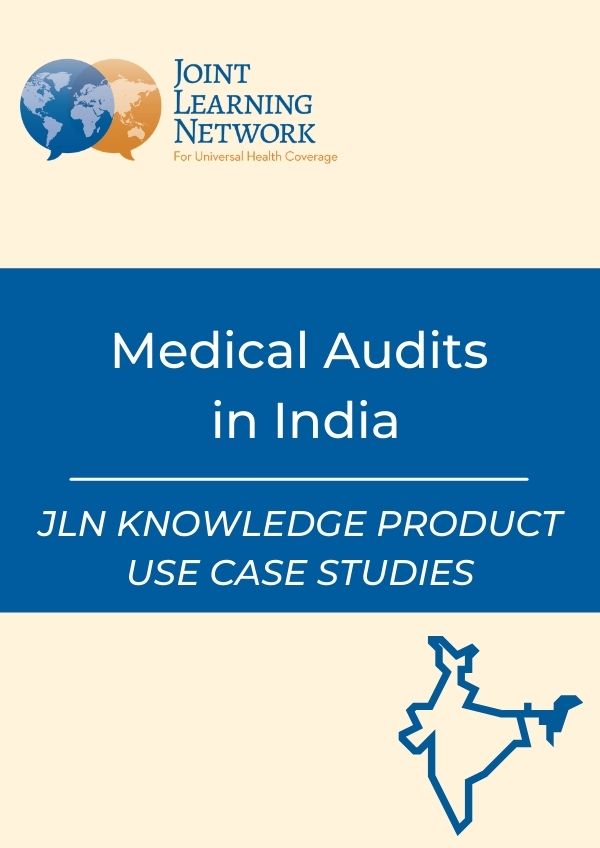
India drew on its participation in the JLN’s Medical Audits Collaborative and adaptation of the Medical Audit Toolkit to implement a medical audit system that could be decentralized and scaled by India’s states to review claims, identify fraud, and ensure the quality of health services being provided to patients.
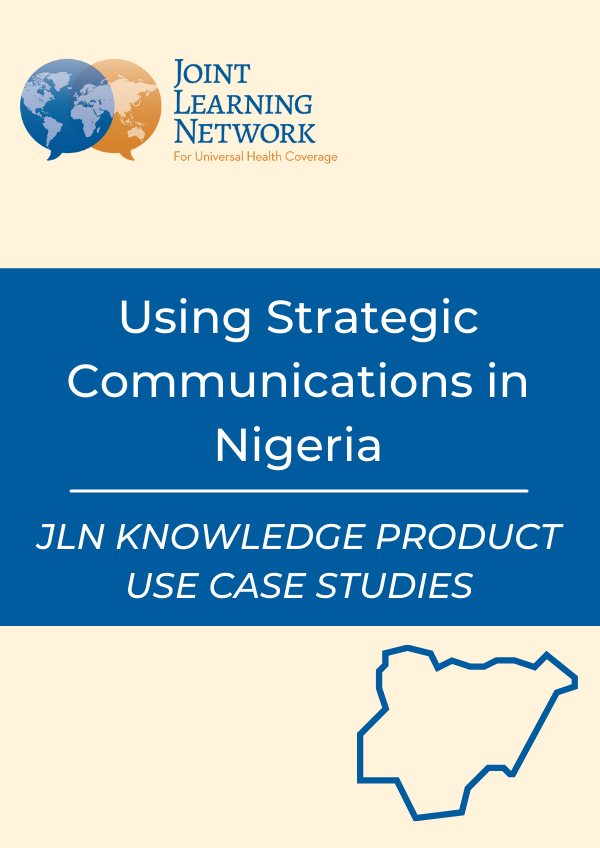
Nigeria’s implementation of the Strategic Communications Practical Guide and Strategic Communications Planning Tool to address underlying facilitators and barriers to the BHCPF led to the first appropriation for the fund and an increase in interest in BHCPF services. The communication plan is thought to have improved the targeting and perception of the rollout communication processes. In 2014, the Government of Nigeria signed the National Health Act into law. The act provides a legal framework for the coordination of the three health care agencies and the entire health system in the country. The Federal Ministry of Health (FMOH), the National Health Insurance Scheme (NHIS), and the National Primary Healthcare Development Agency (NPHCDA), including their corresponding state-level and local government structures, are mandated to implement the specific provision, known as the Basic Health Care Provision Fund (BHCPF), which focuses on removing financial barriers for primary healthcare, particularly for poor and vulnerable Nigerians. This sweeping health reform did not, however, provide an operational roadmap to implement the BHCPF. There were many challenges with operationalizing the National Health Act including but divergent views within the federal government about how to best implement provisions. This case study profiles the use of the Strategic Communications Practical Guide and Strategic Communications Planning Tool in Nigeria to align stakeholders to ultimately operationalize the BHCPF. A team from the Nigeria CCG participated in the Strategic Communications for UHC collaborative funded by the United States Agency for International Development (USAID) through the Health Finance and Governance (HFG) Project and in the co-development of the collaborative outputs which were then customized and used in Nigeria to aid in the BHCPF rollout. The team was able to use these JLN tools to gain a better understanding of key stakeholders in order to better target them with pertinent information. The team also used the stakeholder analysis data to design their action plan, including prioritizing key audiences and co-creating messages specific for these audiences, including specific information to address barriers for community members, health facility workers and budget holders. Ultimately in 2018, the FMOH team received the first appropriation for the BHCPF of approximately USD180 million. This was an accomplishment four years in the making, from the signing of the health law through the development of the implementation and communication plan.
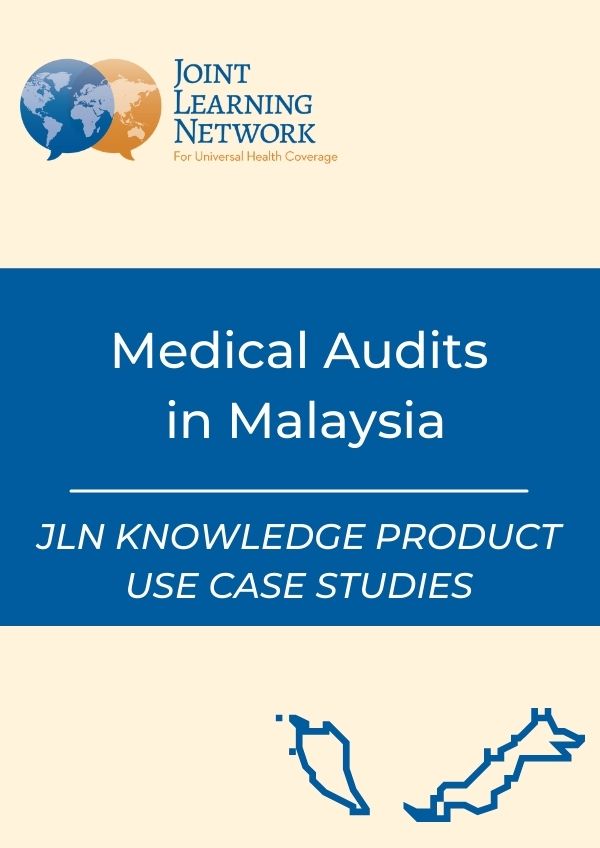
Malaysia’s use of the Toolkit to Develop and Strengthen Medical Audit Systems shaped the operations for a new Medical Audit Section responsible for auditing PeKa B40 claims. The SOPs for the unit support identifying and deterring fraud and review of provider perfomance resulting in improved quality of health care screenings. This case study profiles the use of the Toolkit to Develop and Strengthen Medical Audit Systems in Malaysia. In 2019, the Malaysian Ministry of Health (MOH) launched the PeKa B40 scheme, a program designed to increase screening uptake for non-communicable diseases (NCDs) among Malaysians in the lower-income group; specifically the bottom 40% of the population by income level. Through PeKa B40 program, MOH was exposed for the first time to the claims processing. Claims processing in Malaysia was traditionally done by insurance companies in the private sector, but through ProtectHealth, the Ministry is responsible for PeKa B40 claims from both the public and private facilities. This is an opportunity to make the PeKa B40 claims process transparent and accountable. In April 2019, the Ministry established a Medical Audit Section within ProtectHealth to process and audit PeKa B40 claims. The team used the Toolkit to Develop and Strengthen Medical Audit Systems to design the systems for this new unit.